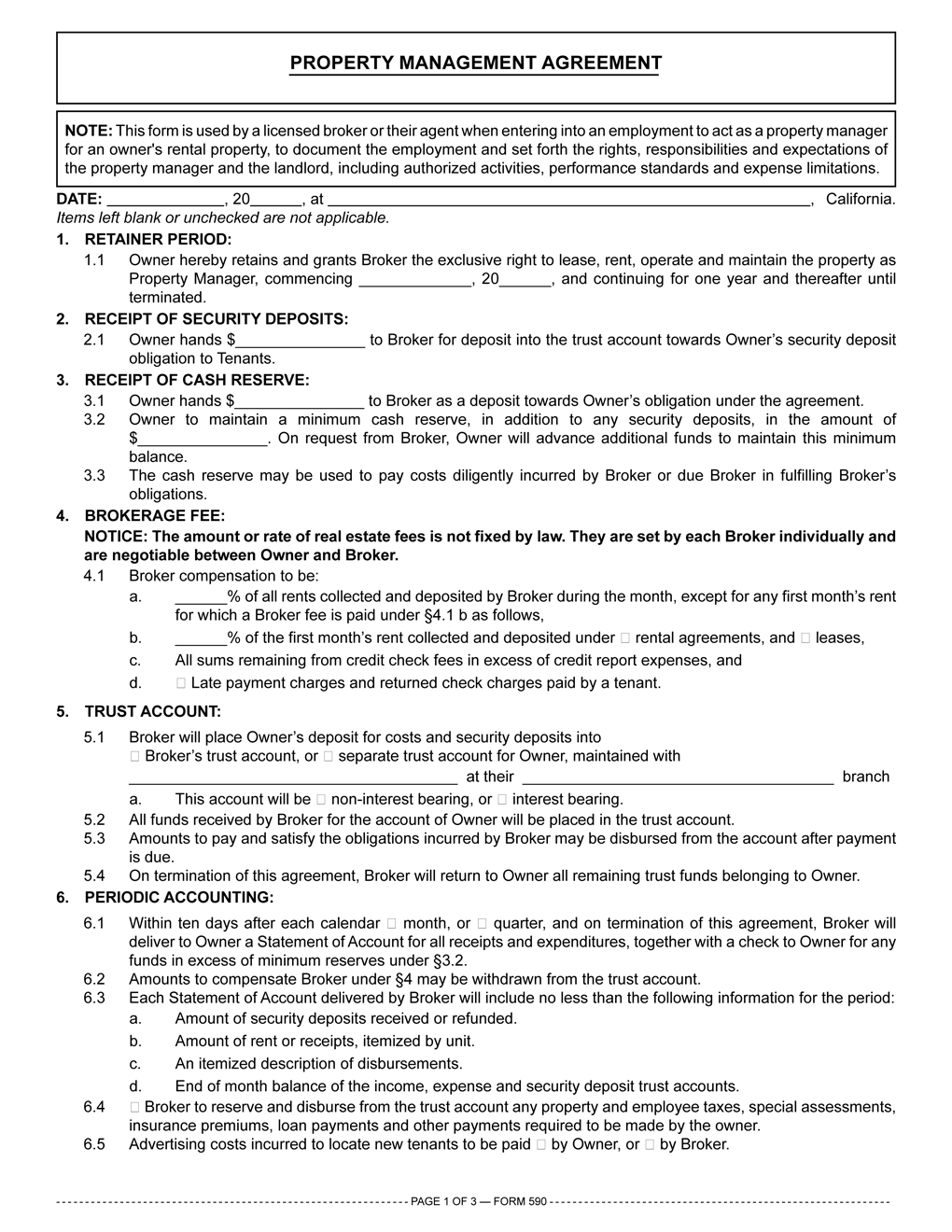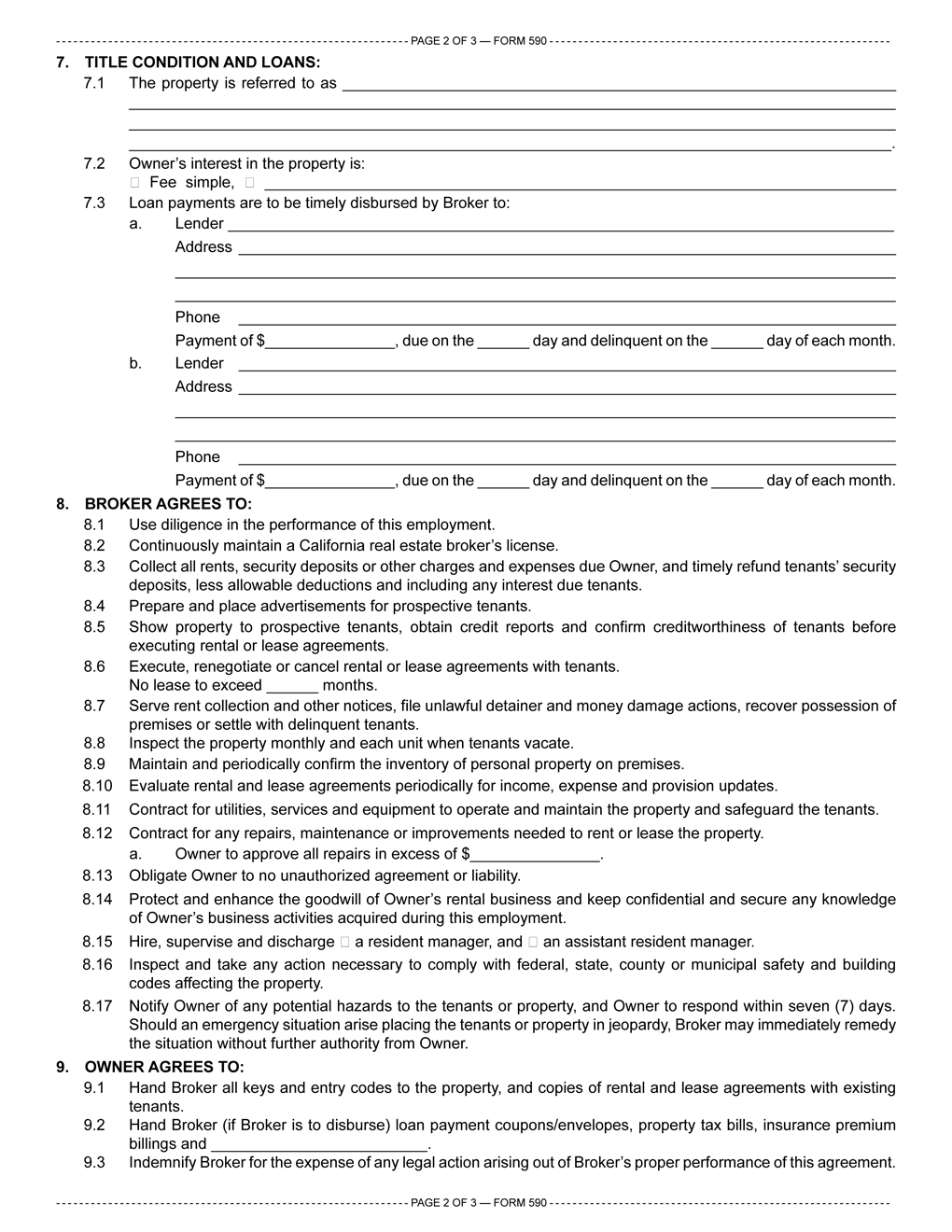Form-of-the-Week: Property Management Agreement – Form 590
Short-form vs. long-form property management agreements
Brokers in the property management business need to enter into highly detailed management agreements which specifically identify and clarify the performance of the property manager and the expectations of the landlord. Generalized “short-form” property management agreements do not contain this degree of necessary detail. Instead, short-form agreements, by omission of certainty, permit the property manager to follow perceived industry customs — whatever those unregulated customs might be or become.
These implied standards, while familiar to the broker, are often details about management that are misunderstood or unknown to the landlord. Disputes usually result when landlords have high expectations due to lack of details. In turn, they receive less than they believe they bargained for when they employed the property manager.
Management obligations detailed in a “long-form” agreement provide greater protection for a broker from claims they have breached their duties to the landlord. Surprises are eliminated and client (landlord) expectations are more realistic as the agreement clearly states the duties of each party. Of course, the broker’s failure to comply with the detailed provisions in the agreement (and broader real estate law) is a breach which may cause the landlord a monetary loss and impose liability on the broker.
















